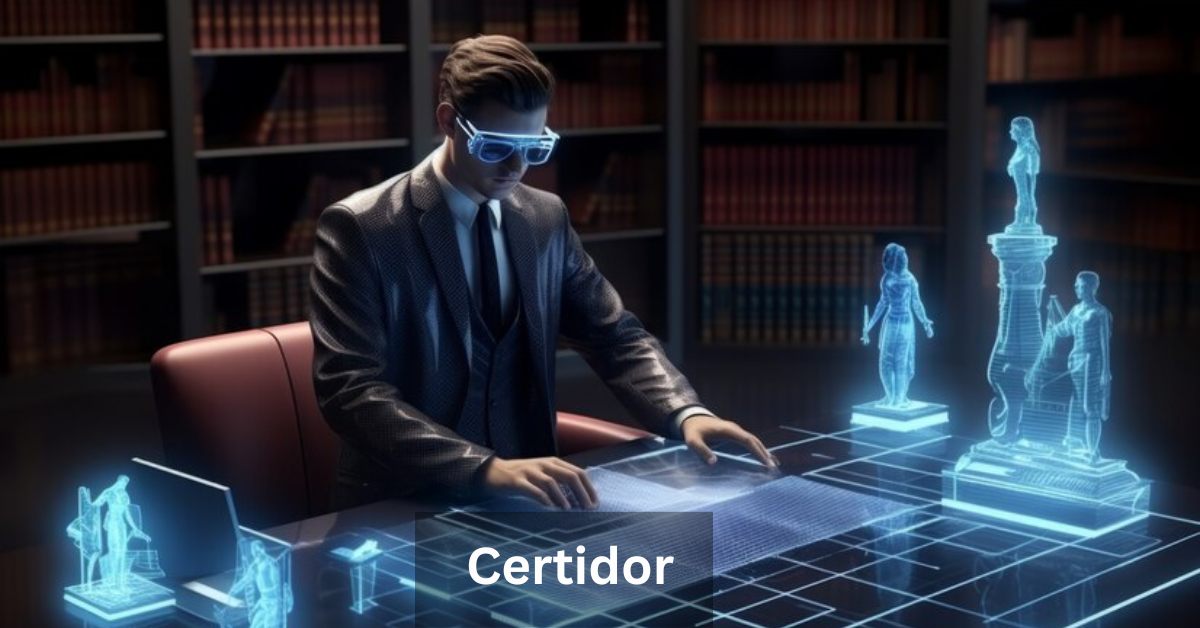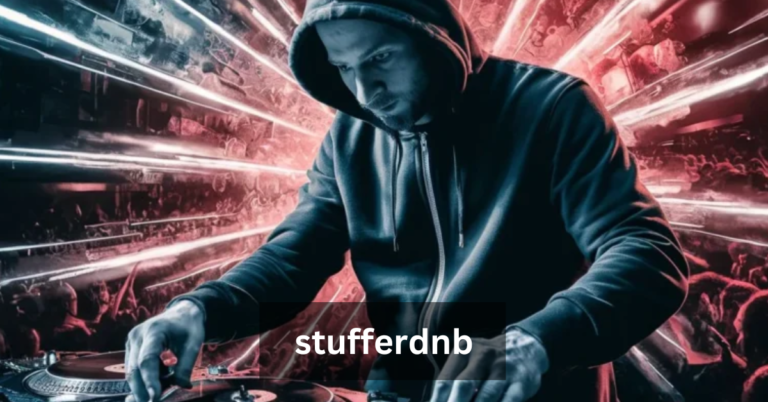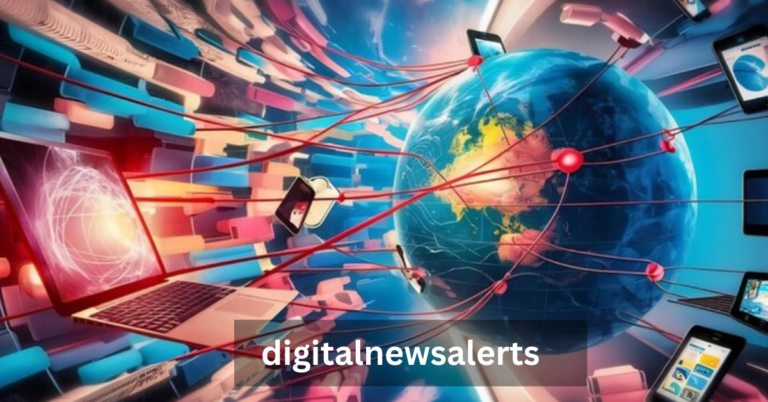Certidor: Revolutionizing Digital Certificate Security
Certidor is a blockchain-based platform designed to provide secure and verifiable digital certificates. By leveraging blockchain technology, it ensures that certificates cannot be tampered with and can be verified in real-time. Users can authenticate and manage their credentials securely using cryptography, biometric authentication, and decentralized ledger technology.
Certidor is changing the way businesses, educational institutions, and individuals verify and manage important digital records, providing a tamper-proof, decentralized solution for digital certificates verification.
Certidor’s mission is clear: to simplify and enhance the verification of digital certificates by combining cutting-edge blockchain technology with biometric identity authentication. The company aims to empower individuals and organizations with tools to manage digital credentials securely and efficiently. With an ever-growing demand for secure and transparent verification, Certidor is paving the way for a future where digital credential management is streamlined, automated, and more secure than ever before.
The company’s vision extends far beyond simple digital certification; it aims to transform entire industries by providing solutions that not only verify but also authenticate digital identities in real-time. By focusing on blockchain-based certification and using distributed ledger technology (DLT), Certidor ensures that credentials cannot be tampered with, providing a permanent and trustworthy record.
Certidor is a platform that enables the secure certificate issuance and verification of digital credentials, utilizing blockchain technology to create immutable, verifiable records. The use of blockchain ledger ensures that once a certificate is issued, it cannot be altered or falsified. This decentralized approach eliminates the need for a central authority, making Certidor a more secure and transparent solution for managing digital credentials.
Explaining Certidor’s Blockchain-Based Platform
At its core, Certidor leverages blockchain technology to create a transparent and unchangeable digital ledger of certificates. This platform allows organizations to issue tamper-proof certificates that are securely stored and can be verified at any time, eliminating the risks associated with paper certificates or traditional digital files. Using Ethereum or Hyperledger platforms, Certidor incorporates smart contracts to automate the entire process of certificate issuance, verification, and revocation.
The blockchain ledger ensures that each certificate is linked to a unique cryptographic record, which can be verified instantly by authorized users. Whether it’s verifying an academic degree or a medical certification, Certidor guarantees that the data is both accessible and immutable.
Key Features of Certidor’s Technology
Certidor stands out by offering features that go beyond traditional certificate verification. Some of its key features include:
- Decentralized Verification Systems: No longer reliant on centralized authorities, Certidor’s blockchain-based certification ensures that all records are decentralized, reducing risks of data manipulation or fraud.
- Automated Certificate Issuance: Using smart contracts and distributed ledger technology (DLT), Certidor allows organizations to issue certificates quickly and securely, reducing the time spent on manual verification.
- QR Code Certificate Verification: Certidor uses QR code certificate verification to allow users to instantly scan and verify digital credentials, adding another layer of convenience and security.
- Biometric Identity Authentication: Through the use of facial recognition technology and biometric identity authentication, Certidor ensures that only authorized users can access and verify certificates, further reducing the risk of identity theft.
How Certidor Ensures Secure and Immutable Records
One of Certidor’s main selling points is its ability to ensure the security and immutability of records. Blockchain technology, which underpins Certidor’s platform, guarantees that once a certificate is created, it cannot be altered or destroyed. This process is powered by cryptographic security in certificates, where each transaction is encrypted and validated by multiple nodes on the network. These nodes work together to ensure that records remain consistent and tamper-free.
Moreover, Certidor’s decentralized verification system ensures that no single entity controls the data, which enhances transparency and trust in the system. This is especially important when dealing with critical documents like academic qualifications or legal contracts.
How Certidor Leverages Blockchain for Digital Certificates
Blockchain technology is a decentralized, immutable ledger that allows data to be stored across a network of computers. This system is what gives Certidor its strength: the ability to verify and store certificates in a way that makes them impervious to fraud or manipulation. Certidor’s blockchain platform ensures that each certificate is not only stored securely but also easily accessible for verification whenever needed.
Blockchain Technology Explained: How Certidor Uses Decentralized Ledger Systems
Certidor’s decentralized ledger is key to its success. By utilizing blockchain’s inherent features, Certidor can store immutable data records that anyone can verify at any time. This drastically reduces the chances of credential fraud and ensures that the data remains trustworthy.
In a traditional system, a central authority or organization may be responsible for maintaining records. However, this centralized approach is vulnerable to tampering and hacking. With blockchain and distributed ledger technology (DLT), Certidor eliminates this risk, creating a more transparent and secure system where the data is distributed across multiple nodes on the network.
The Role of Cryptography in Securing Digital Credentials
Cryptography is at the heart of Certidor’s platform. The use of cryptographic algorithms ensures that each certificate is securely encrypted, making it nearly impossible to forge or tamper with. When a certificate is issued, the cryptographic keys associated with it are stored securely on the blockchain, and only authorized individuals can decrypt and verify the certificate.
This advanced encryption technology not only protects the certificate’s integrity but also ensures that any communication regarding the certificate (such as its issuance or verification) is securely transmitted. This is particularly important when handling sensitive information like academic credentials or professional certifications.
Blockchain’s Advantages Over Traditional Verification Methods
Traditional certificate verification methods involve manual processes and centralized authorities, which can be time-consuming and prone to errors. Certidor, on the other hand, offers a more efficient, faster, and more secure alternative. By using blockchain technology in credentials, Certidor allows organizations and individuals to verify certificates in real-time without relying on third parties.
The immutable data records stored on the blockchain eliminate the need for physical documents, reducing the risk of loss or theft. Additionally, the use of automated certificate issuance ensures that certificates can be issued quickly and with minimal human intervention.
Certidor’s Core Services
Certidor offers a variety of core services designed to streamline the process of verifying and managing digital credentials. These services include:
Identity Verification with Biometrics and Automation
Certidor uses cutting-edge biometric identity authentication to ensure that only authorized individuals can access or verify sensitive documents. By using technologies like facial recognition or fingerprint scanning, Certidor provides an extra layer of security, helping prevent unauthorized access to digital certificates.
Document Authentication and Certificate Issuance
With Certidor, organizations can securely issue digital certificates that are cryptographically secured and easily verifiable. This eliminates the need for paper certificates, reducing costs and the potential for fraud.
Real-Time Certificate Verification via QR Codes and Blockchain
Certidor also allows users to verify certificates in real-time using QR code certificate verification. By simply scanning a QR code, individuals can instantly confirm the authenticity of a certificate, saving time and improving efficiency.
Applications of Certidor Across Various Industries
Education: Verifying Academic Credentials and Diplomas
In education, Certidor is revolutionizing the way academic qualifications are verified. By using blockchain-based certification, educational institutions can ensure that diplomas, degrees, and certifications are legitimate and tamper-proof. This helps to reduce the prevalence of degree fraud and makes it easier for employers to verify candidates’ qualifications.
Healthcare: Ensuring Secure Medical Certifications
Certidor’s platform is also used in healthcare to verify medical licenses and certifications. This ensures that professionals have the credentials they claim, improving trust in the healthcare system and enhancing patient safety.
Finance and Legal: Secure Digital Contracts and Financial Records
In the finance and legal sectors, Certidor helps companies verify digital contracts and financial records. By using cryptographic security and blockchain technology, Certidor ensures that all records are transparent, immutable, and secure, preventing fraud and reducing risks.
Human Resources: Simplifying Employee Onboarding and Credential Verification
For HR departments, Certidor simplifies the employee onboarding process by allowing companies to quickly verify credentials and certifications. This saves time and ensures that employees meet the necessary qualifications.
The Role of Certidor in Digital Identity Management
Certidor plays a key role in the growing field of digital identity management, providing solutions that empower individuals to control and manage their digital credentials securely. By enabling individuals to manage their credentials through self-sovereign identity (SSI) systems, Certidor is promoting a future where individuals have full control over their personal data.
Building Trust in the Digital Era
As the world becomes more digital, building trust in online transactions and interactions is essential. Certidor’s use of blockchain technology and biometric authentication fosters trust by ensuring that digital certificates and identities are both secure and verifiable.
Empowering Individuals with Control Over Their Digital Credentials
Certidor’s platform allows individuals to store and manage their digital credentials securely and independently. This approach is aligned with the principles of Self-Sovereign Identity (SSI), where individuals retain ownership of their personal data without relying on centralized authorities.
The Impact of Blockchain on Traditional Industries
Certidor’s integration of blockchain and distributed ledger technology (DLT) is transforming traditional industries by offering more secure, efficient, and transparent solutions. Industries like education, healthcare, finance, and human resources are all benefiting from the ability to securely store and verify credentials without relying on outdated methods.
By integrating blockchain into these sectors, Certidor reduces administrative costs, prevents fraud, and improves the overall efficiency of verification processes. For example, in education, it eliminates the need for manual verification of academic qualifications, which can often be slow and prone to errors.
Transforming Legacy Systems with Certidor’s Digital Certification Solutions
Many organizations still rely on legacy systems for certificate issuance and verification, which are often prone to inefficiency and fraud. Certidor is helping businesses and institutions transition to more secure, digital solutions through the use of blockchain technology and automated certificate issuance. This transformation is not just about improving security but also about streamlining workflows and reducing operational costs.
By adopting Certidor’s blockchain-based platform, institutions can significantly reduce the time it takes to issue and verify credentials, which in turn boosts productivity and enhances overall organizational performance.
Reducing Fraud and Misrepresentation in Credential Verification
One of the most compelling reasons to adopt Certidor’s platform is its ability to prevent fraud and misrepresentation. Traditional systems for credential verification are often vulnerable to manipulation. However, with Certidor, the risk of fraud is minimized due to its tamper-proof certificates and blockchain ledger that cannot be altered once they are created.
For businesses, this means that they can have full confidence in the authenticity of documents they receive, whether they are academic degrees, professional certifications, or other important credentials. This capability is particularly beneficial for industries where trust and verification are paramount, such as healthcare, legal sectors, and finance.
How Certidor Promotes Compliance and Regulatory Adherence
Certidor is also a valuable tool for ensuring that businesses remain compliant with regulations like the General Data Protection Regulation (GDPR) and other international standards for digital certificates. By using cryptographic security and blockchain technology, Certidor ensures that certificates are issued and stored in a way that complies with the highest privacy and security standards.
This is especially important for companies that need to maintain compliance with strict regulations governing data privacy and security. Certidor’s ability to provide audit trails and ensure data integrity makes it an ideal solution for businesses looking to meet regulatory requirements while also protecting sensitive information.
Security and Privacy: Protecting Sensitive Data
When it comes to digital certification, protecting sensitive data is critical. Certidor employs advanced encryption protocols to ensure that certificates and personal information are stored securely and can only be accessed by authorized individuals. Additionally, the platform uses biometric identity authentication to further ensure that only verified users can access and verify sensitive credentials.
By leveraging blockchain’s cryptographic security, Certidor guarantees that the data stored on its platform is secure from unauthorized access, hacking, or tampering. This level of protection is essential in today’s increasingly digital world, where data breaches and cyberattacks are becoming more common.
How Certidor Uses Encryption and Biometric Authentication
Certidor goes above and beyond traditional verification methods by utilizing both encryption and biometric authentication. The use of facial recognition technology or fingerprint scanning makes it nearly impossible for unauthorized individuals to access sensitive data or certificates. These biometric methods not only enhance security but also improve the user experience by providing a more seamless and efficient verification process.
Legal and Regulatory Compliance: Certidor’s Global Approach
Certidor’s platform is designed to comply with global regulations, including the GDPR in the European Union, ensuring that its solutions are secure and legally compliant in diverse regions. The platform’s adherence to these regulations guarantees that businesses and individuals can rely on Certidor for secure and compliant certificate issuance and verification, no matter where they operate in the world.
The Future of Digital Certification: What’s Next for Certidor?
The future looks incredibly bright for Certidor and the broader digital certification space. As more businesses and industries embrace blockchain-based certification, Certidor is poised to continue leading the way in offering secure certificate issuance and verification solutions.
Innovations and Developments in Blockchain for Verification
The future of blockchain and digital certificates is rich with potential. Certidor is continuously innovating to integrate new technologies, such as artificial intelligence (AI) and machine learning, to further improve the speed and accuracy of certificate verification. These advancements will make the platform even more efficient, as well as more scalable, supporting larger networks of users and certificates.
The Role of AI and Machine Learning in Enhancing Certidor’s Solutions
AI and machine learning technologies can significantly improve Certidor’s verification process by predicting potential security risks and automating the detection of fraud. These technologies, when integrated with blockchain, could offer even more advanced solutions for verifying digital identities and credentials in real-time.
Potential Impact on Future Business and Educational Practices
In the future, Certidor’s platform could become an integral part of business operations, particularly in industries where trust and security are essential. Education, for instance, will benefit from a more secure and efficient way of verifying academic credentials, while businesses could see enhanced trust in the hiring process, reducing the risk of employing individuals with fraudulent qualifications.
Conclusion
As we continue to embrace the digital transformation in every sector, Certidor stands at the forefront of ensuring that digital credentials are both secure and verifiable. Through its use of blockchain technology, cryptographic security, and biometric authentication, Certidor is building a future where certificates are protected from fraud, accessible on demand, and fully trusted by all parties involved.
Certidor is not just a tool for today; it’s a key player in shaping the future of digital identity management, credential verification, and compliance across industries. By embracing these innovative solutions, businesses and individuals can take full control of their credentials, ensuring their authenticity, security, and compliance with global standards.
Security: Certidor uses cryptography and blockchain technology to secure digital certificates, protecting them from fraud and tampering.
Efficiency: Automated certificate issuance and real-time verification through QR codes and blockchain make the process faster and more reliable.
Compliance: Certidor complies with international regulations like GDPR, ensuring that all digital certificates are legally and securely managed.
As the world moves further into the digital age, Certidor offers the tools and solutions necessary to ensure that digital credentials remain trustworthy, verifiable, and secure. Whether you’re an individual looking to manage your digital identity, or a business or institution seeking to streamline verification processes, Certidor provides the future-proof solutions needed to navigate this new era of digital transformation.
Frequently Asked Questions
How does Certidor ensure the security of digital certificates?
Certidor uses cryptographic encryption and blockchain technology to create tamper-proof certificates. Once a certificate is issued, it is recorded on a decentralized ledger, ensuring that it cannot be altered or forged, thus guaranteeing the security and authenticity of the document.
Can Certidor be used for academic credential verification?
Yes, Certidor is particularly effective for verifying academic credentials. By storing educational qualifications on a blockchain, Certidor allows institutions, employers, and recruiters to easily verify degrees, diplomas, and certifications, reducing the risk of fraud and speeding up the verification process.
How does Certidor use biometrics in identity verification?
Certidor uses biometric identity authentication methods, such as facial recognition and fingerprint scanning, to ensure that only authorized individuals can access and verify certificates. This adds an additional layer of security to the platform, preventing unauthorized access to sensitive information.
Is Certidor compliant with data privacy regulations like GDPR?
Yes, Certidor is fully compliant with global regulations like GDPR. The platform ensures that personal data is protected through encryption and secure storage practices, giving individuals control over their digital identities while adhering to legal and regulatory requirements for data privacy and security.
Stay in touch to get more updates & alerts on Ancient-Artz! Thank you






